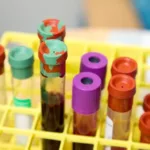Introduction to Sexually Transmitted Infections (STIs)
Sexually transmitted infections, also known as STIs, are diseases and/or infections that are passed from one person to another through intimate sexual contact. STIs are common, and anyone who has penile, anal, or oral sex – or any sexual activity involving genital contact, such as mutual masturbation – is at risk of catching an STI.
Understanding & Preventing STIs
The best way to prevent the spread of STIs is to practice safe sex. This includes using condoms, dental dams, and other barrier methods to protect against skin-to-skin contact and exchange of bodily fluids during sex. It is also important to get tested for STIs regularly, especially before and after having new sexual partners. Other ways to reduce the risk of getting an STI include avoiding sex with multiple partners and abstaining from sexual activity.
Common STIs & Signs & Symptoms
STIs can range from mild to more severe. Common STIs include chlamydia, gonorrhea, syphilis, HIV, HPV, and herpes. Each STI has its own set of signs and symptoms, which may include burning, pain, itching, and discharge among others. It is important to remember that some STIs are asymptomatic, meaning that they do not show any signs or symptoms.

Diagnosis & Treatment of STIs
STIs can be diagnosed with simple tests, such as urine tests or blood samples. If an STI is identified, medications are usually prescribed to treat it. The type of medicine and dosage will vary greatly depending on the type of STI and its underlying cause.
STI Risks & Complications
Certain complications can arise from untreated STIs. These can include increased risk for certain cancers, infertility, and stroke, as well as increased risk of transmitting an STI to sexual partners.
STIs & Sexual Health
STIs can affect a person’s sexual health and wellbeing, both physically and emotionally. It can cause feelings of guilt and shame, difficulties with relationships, and lifelong health complications.
Minimizing Risks & Protecting Yourself
The best way to minimize risks and protect yourself from STIs is to practice safe sex by using condoms and other barrier methods. Additionally, it is important to get tested for STIs regularly and be open and honest with sexual partners about your sexuality and sexual history.
Why It’s Vital to Get Tested
Getting tested for STIs is important to maintain sexual health and to reduce the spread of the infection. Early diagnosis and treatment can help reduce the risk of long-term complications and transmitting the infection to others.
Common Myths & Misunderstandings About STIs
There are many myths and misunderstandings about STIs. It is important to understand that STIs do not discriminate, they can affect anyone regardless of age, gender, race, and sexual orientation. It is also important to know that STIs are common, can be treated, and prevention is possible.

The Importance of Open Communication About STIs
Open and honest communication about sexual health is key to preventing the spread of STIs. This includes discussing prior sexual history, current medications and any health conditions, as well as any symptoms or signs of an STI.
The Consequences of Ignoring Symptoms of STIs
Delaying or ignoring the symptoms of an STI can have serious consequences. If left untreated, STIs can lead to long-term health complications, such as infertility, or even death in some cases.
Re-Infection & Managing Recurrent STIs
It is possible to get re-infected with a new strain of an STI, even if treatment is successful. To manage recurrent STIs, it is important to always practice safe sex, get tested regularly, and talk to a health care professional about management and treatment options.
Resources for Getting Help & Support
There are a variety of resources available to help those with an STI. These include online forums, support groups, and helplines, as well as counseling and other mental health services.
Prevention Through Vaccines & Medications
There are vaccines and medications available to prevent and reduce the transmission of some STIs, such as HPV and HIV. It is important to discuss available options with a health care provider, to help minimize risk and protect themself and partners.
What to Do If You Have an STI
If you think you have an STI, it’s important to get tested and get treated right away. It’s also important to tell your sexual partners so they can get tested and treated as well, even if they don’t show any signs or symptoms.
Sexually transmitted infections are common and can have serious health implications if left untreated. It is important to practice safe sex, get tested regularly, and be open and honest with your sexual partner about your sexual history. Vaccines can also help to protect against certain STIs. Above all else, if you experience any signs or suspects that you may have an STI, it is important to get tested and treated right away.




